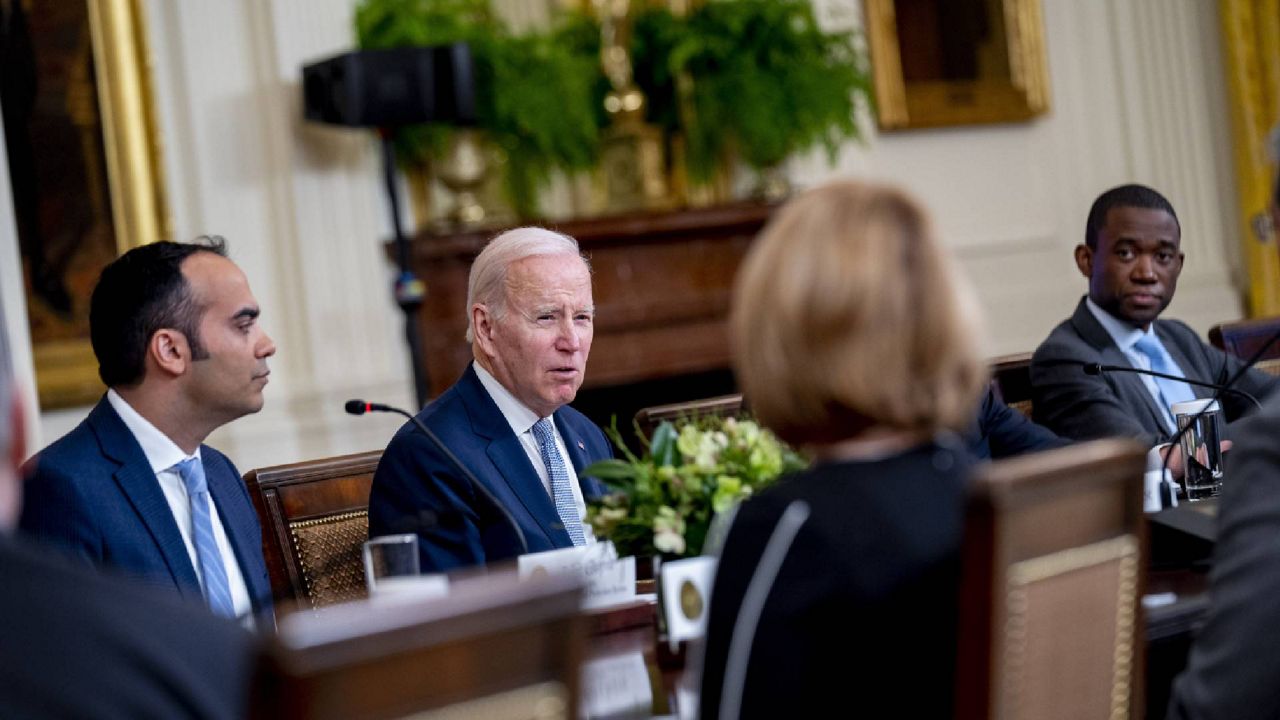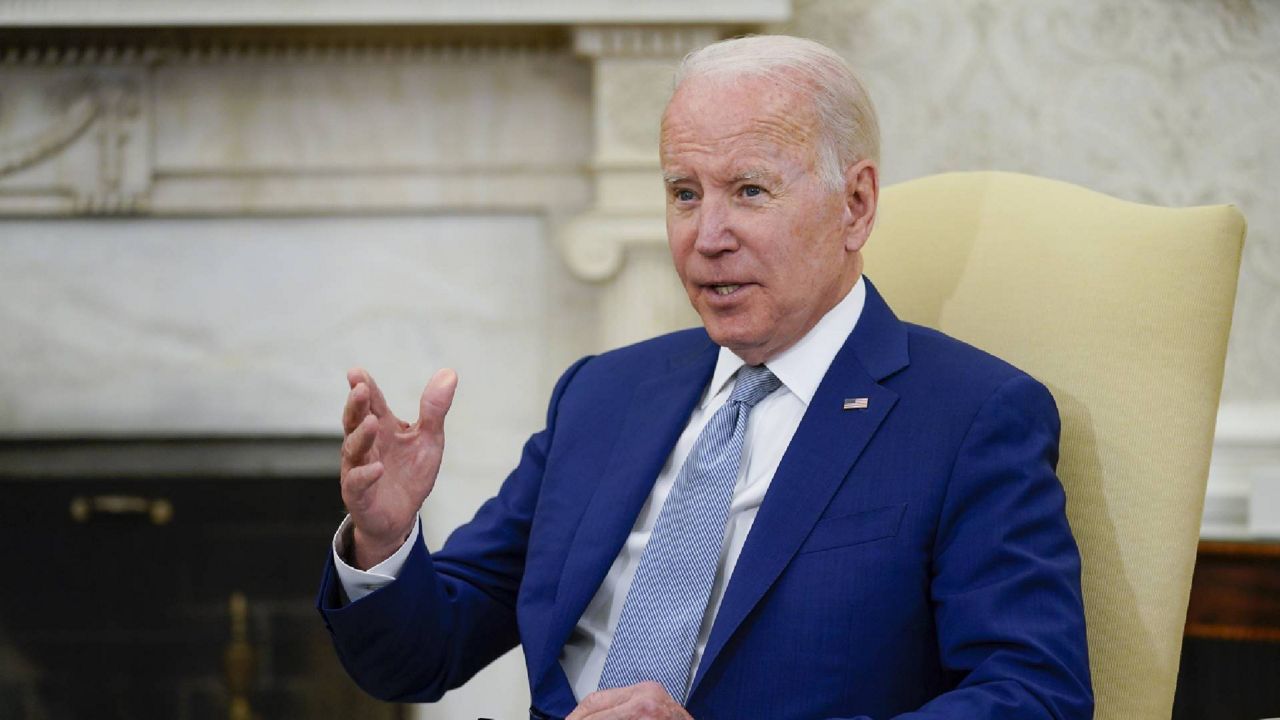WASHINGTON, D.C. — The Biden administration on Wednesday announced a new effort to cut down credit card late fees, the latest effort in a push to promote competition and eliminate “junk” fees, in a move that the nation’s consumer watchdog agency said could save Americans as much as $9 billion per year.
Credit card companies currently charge an average of $31 to people who don’t pay their bill on time, according to the Consumer Financial Protection Bureau, costing consumers a total of $12 billion per year.
A new CFPB rule proposed Wednesday would automatically set late fees at $8 for a missed payment, plus limit the fees to a quarter of your minimum payment and end automatic yearly increases for inflation.
CFPB Director Rohit Chopra told reporters that companies are not increasing fees in line with the amount it really costs to collect the extra dollars.
“We worry that credit card companies are actually hoping that consumers are a day or two late,” he said.
Under the proposed rule, companies could increase the fees if they can prove their collection costs are greater than the amount set by regulators.
Chopra called the rule one of his agency’s “many efforts … to restore more competition to the market and reduce the billions of dollars in junk fees drained from family budgets.”
Companies have used a 2009 law to hike the penalties despite little increase in collection costs, Chopra said. Under the CARD Act, fees were originally capped at $25, an amount that increased over the years due to inflation to a $30 cap today, or $41 for repeat missed payments.
The new rule would drop the typical fee to $8 for any missed payment. The proposal is now open for 60 days of public comment, meaning fee rules have not changed yet.
President Joe Biden on Wednesday also spoke about the fees when he convened his competition council, which includes CFPB Director Chopra and other leaders of various federal agencies, all together aimed at fighting corporate consolidation and lowering prices for Americans.
“These unfair fees add up. It's a basic question of fairness,” Biden said before the meeting.
“People have lost faith in government's ability to deliver. They've lost faith in the private sector,” Biden later added. “It’s about just letting people know that, you know, we see what's happening.”
The council’s efforts also focus on workers, including a recent move by the Federal Trade Commission to ban non-compete agreements. Other initiatives to increase competition include the Department of Transportation’s crackdown on airlines’ compensation for delayed or canceled flights, or the implementation of a rule allowing people to buy hearing aids over the counter.
In the realm of bank fees, the CFPB also took a crack at overdraft fees in October, saying some major banks may be breaking the law by charging customers if they thought they had enough money in their account at the time of purchase.
The president of the American Bankers Association on Wednesday called the CFPB late fee proposal "extreme" in a statement, saying it is inconsistent with federal law and would cause "more late payments, higher debt and lower credit scores."
"Americans value and appreciate the convenience and security they get from their credit cards, and they recognize there is a cost for that service," Rob Nichols said.





